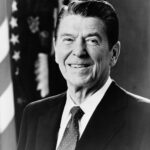The First Amendment’s Not-So-Obvious Safeguard: Economic Liberty
When we think of the First Amendment’s protections, we often think of our freedom to hold views and speak our minds as we see fit without limitations and repercussions from the government. This has become an increasingly “sexy” issue over the past few years as cancel culture and the crackdown on the expression of unpopular ideas has dominated the cultural dialogue.
But many may not realize that the First Amendment not only protects your right to express your views, it also treads into the territory of economic liberty by safeguarding commercial speech— the right to freely and truthfully market a consumer product. And while this First Amendment safeguard is often forgotten, it is no less important than the protection of the freedom of expression.
As e-cigarettes began to rise in popularity, the Food and Drug Administration (FDA) stepped in and demanded they be regulated as “tobacco products.” This was a huge blow to e-cigarette manufacturers who relied on advertising their products as “tobacco-less” to appeal to those who were trying to quit traditional cigarettes or who wanted a healthier alternative, thus securing their economic livelihood.
To be absolutely clear, e-cigarettes do not contain tobacco, which made this regulation not only absurd but unconstitutional as it infringed on a manufacturer’s right to truthfully advertise its product to consumers—an pivotal aspect of the First Amendment’s guarantee of free speech.
But this example, while egregious, is hardly an isolated instance.
Plant-based burgers have become a favorite product of consumers as of late, offering a vegetarian alternative to those who do not eat meat. The Impossible Burger has been one of the most successful of these products, now being offered in several major fast food restaurants. But just like e-cigarettes, its success with consumers triggered a backlash as regulators stepped in to forbid these companies from using the term “burger.”
With pressure from the beef industry, Mississippi led the charge, forbidding plant-based burgers from using the term burger to advertise their products. Recognizing this as a violation of First Amendment rights, the Institute for Justice stepped in to help the plant-based burger industry.
Yet another seemingly silly, but nonetheless harmful example of commercial speech being threatened comes from the nut milk industry. Nut milks have come under fire recently as the FDA has considered forbidding these companies from using the term “milk” to describe their product.
Milk has been historically associated with animals, primarily cows, but over the last several years nut milks, like almond and cashew, have risen in popularity replacing dairy milk.
In fact, since 2018, dairy milk has declined in consumption by 25% while nut milks are on the rise.
The FDA has claimed that this regulation is intended to protect consumers who may not understand that they are not purchasing milk that comes from cows.
Justin Pearson, a senior attorney at Institute for Justice, commented, “If a consumer is confused about the source of a product labeled ‘almond milk,’ then he has bigger problems than being confused about which milk to buy.”
The same holds true for plant-based burgers and tobacco-less e-cigarettes.
You’ll notice that in each of these examples protectionism from existing industries has been at the heart of the movement to regulate commercial speech. And most industries aren’t even trying to hide it.
As one dairy farmer explained:
“They can call it juice or beverage, or whatever they wish, but we just don’t want them to call it milk.”
While almond milk may not come from a cow, calling it “juice” would not accurately describe the role it plays in one’s dietary life. Nut milks are an alternative to animal-based milk, just as the Impossible Burger is a substitution to beef burgers. They are used in the same way as dairy milk and beef respectively, so there is no substantial issue with false advertising.
These arbitrary regulations on commercial speech impede an individual’s right to earn a living and secure their financial livelihood without fear of government interference.
While commercial speech has not been as well-protected or prioritized as other aspects of the First Amendment, it still deserves our attention. And over the last several decades, the courts have tended to agree.
In the 2002 case, Thompson v. Western States Medical Center the Supreme Court said in its decision that it “rejected the notion that the Government has an interest in preventing the dissemination of truthful commercial information in order to prevent members of the public from making bad decisions with the information.”
In the 1994 case, Rubin v. Coors Brewing Co., the Court decided that in order for such limitations on commercial speech to be justified, the government “must demonstrate that harms it recites are real and that its restrictions will alleviate them to a material degree.”
Yet, with each of the examples discussed, the government has tried to mask protectionism under the guise that they are protecting the consumer from its own decisions, and it comes at the expense of free speech.
Just as every business owner has the right to explain their product, each consumer has the right to choose which products they purchase. This is the beauty of economic liberty. And this liberty cannot be secured without the protection of commercial speech.
While not the most obvious safeguard, it is of the utmost importance for those of us who vigilantly support free speech to make sure we protect every aspect of the First Amendment. For if we pick and choose which elements to prioritize, we leave every aspect of the amendment’s protection vulnerable to government intrusion.




